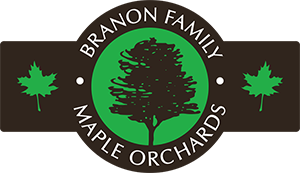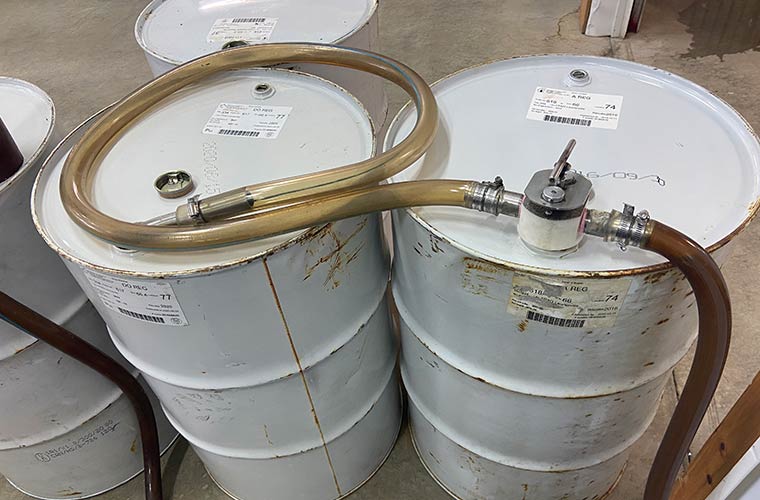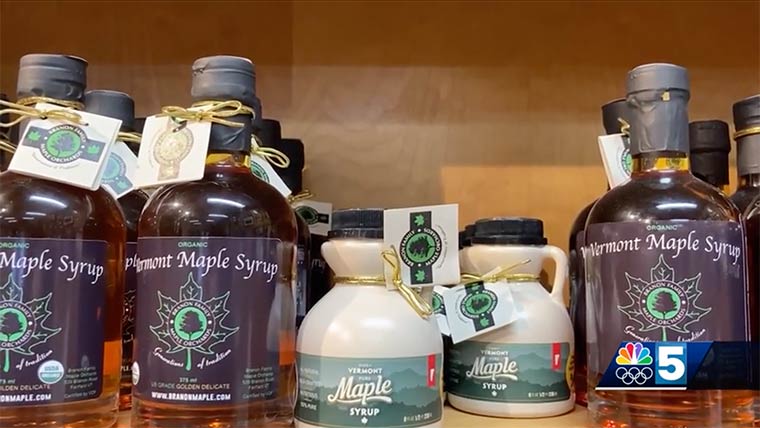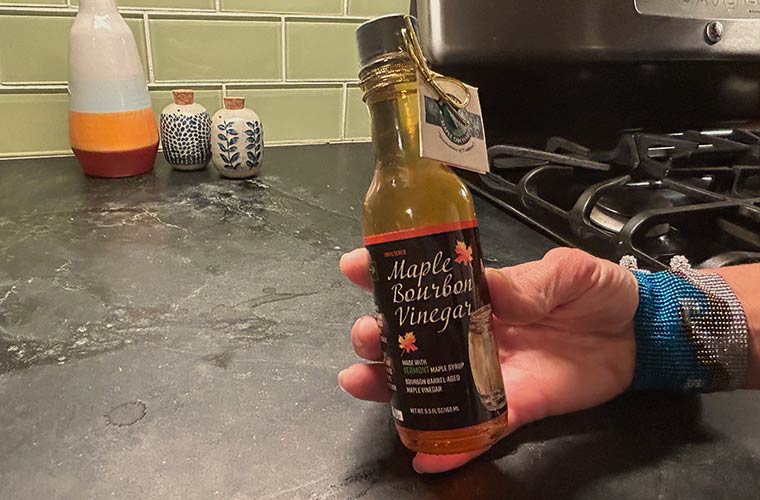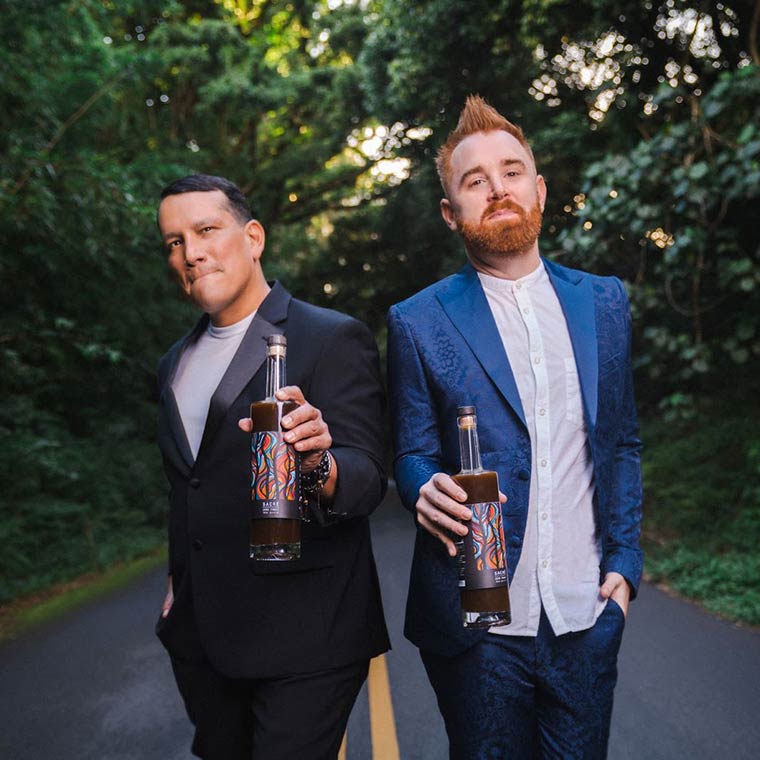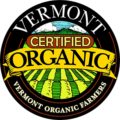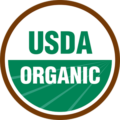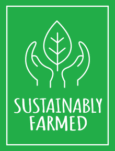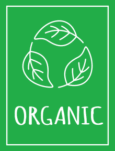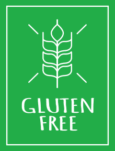A Sweet Partnership As the calendar turned to 2025 and we finished our end-of-year paperwork,…
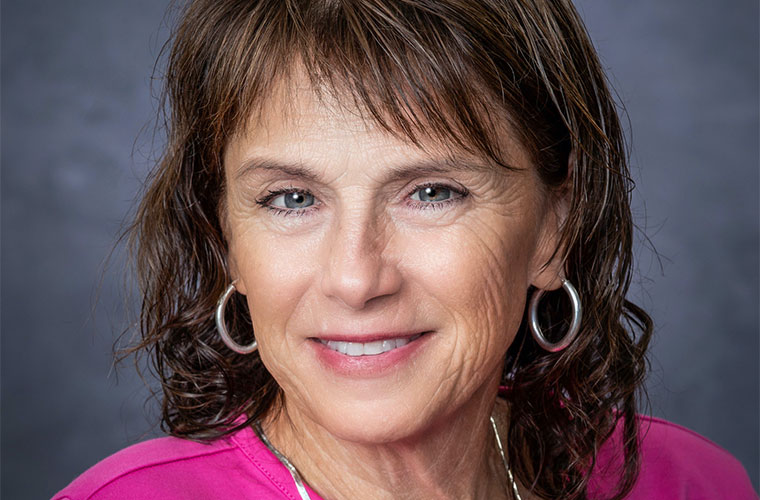
Cecile Branon of Branon Family Maple Orchards: 5 Things You Need To Create a Successful Food Line or Specialty Food
At Branon Family Maple Orchards there are times when we get caught in the daily grind.
Sometimes, in the moment, we lose sight of the big picture.
That’s why we often reflect on this interview in Authority Magazine with Cecile Branon that puts into perspective what it means to run a family-owned business. When it’s a typical day and we’re busy shipping out gallons of Vermont maple syrup to places around the country, it can be easy to stray great nuggets of wisdom shared in this interview conducted late in 2020.
Some of the highlights include:
“Think like a farmer,” Cecile said. “Have an attitude to do whatever it takes. We work nights. We work weekends. Customer service is important, so we go out of the way to make sure people buying our products get what they expect. My husband and I came from families that had to learn work hard just to survive and that lesson has certainly stuck.”
Or this one, where she was asked how she helps make the world a better place.
“I wake up every day wondering how I can be better — a better wife, better mother, grandmother, business owner, all of it. Tom and I believe what goes around comes around, so we give a lot of time to people who need our help.”
If you have a few minutes and are looking for some guidance, please take the time to read the full interview below.
Define your market. Start small. If you do not have a customer basis to introduce your new products to, use family and friends to see if they like your product and its taste. Then define how big you want to be. Seasonal? Year-round? Know what you can handle. Know what you have for capacity of growth, and how quickly you can grow.
— Cecile Branon
As a part of our series called “5 Things You Need To Create a Successful Food Line or Specialty Food”, I had the pleasure of interviewing Cecile Branon, co-owner of Branon Family Maple Orchards in Fairfield, VT.
Cecile, 62, purchased a family dairy farm with her husband, Tom, in northern Vermont in the mid-1980s. As the dairy industry waxed and waned, the Branons invested heavily in their maple sugar woods and produced pure, organic maple syrup. Cecile expanded the offerings with maple cream and jelly, selling those products at the farm, then moved on to perfecting grilling sauces and seasonings. The Branons now tap nearly 90,000 trees on more than 4,000 acres, and her specialty food line sells direct to consumers online and at select retailers around the country.
Thank you so much for doing this with us! Before we dive in, our readers would love to learn a bit more about you. Can you tell us a bit about your “childhood backstory”?
I was raised in a French-Canadian farm family in St. Albans, VT. My mother was born in a northern Vermont house that was located half in the U.S. and half in Canada. My father was Canadian, but his family purchased a farm in the U.S. and moved and raised the family here. After he returned from World War II, he married my mother, purchased the farm from his father and was a dairy farmer until he died. I was 6 at the time of his death. We were three girls growing up, and I was the youngest. We did not have to be taught how to do chores around the house because it was simply expected. I was always working jobs growing up, and after I graduated high school, I became the first person in my family to go to college.
Can you share with us the story of the “ah ha” moment that led to the creation of the food brand you are leading?
I married Tom in 1979 and he was from a large Irish-Catholic dairy farm family that also produced maple syrup the traditional manner with buckets, horse-drawn sleds and wood-fired evaporators. We purchased one of his family’s farms in 1984, but over the years pivoted more toward maple. I started learning how to cook with maple syrup and was intrigued. I found some mentors, local women, that I meet at county fairs to teach me. There were always maple cooking contest that I would try to take part in, mostly with the pure maple recipes. After many years of cooking the basic maple products, I set out one day wanting to make a maple marinade. My thought was to use as many all-natural products as possible. Mixing and mingling spices with the maple I found there was a delicate balance when cooking the ingredients because the flavor would change as they simmered together. I made a batch that came out more like a barbeque sauce than a marinade. We slathered it on chicken and it was surprisingly good. I can still remember the taste of that chicken, sweet but tangy, and I knew right then that while I failed making a marinade, I’d come up with a really good maple barbecue sauce.
Can you share a story about the funniest mistake you made when you were first starting? Can you tell us what lesson you learned from that?
I’ve certainly had more mistakes than successes. But if you don’t fail, you will never succeed. Part of my mistakes are because my star ingredient, maple, can be tricky to work with. My biggest mistake: I was trying to make maple sugar and I used syrup that was produced late in the season, and the invert sugar (that means the syrup does not crystalize) was off. I ended up with gallons of this sweet goop, the consistency of peanut butter, that I couldn’t do much with. I asked my mentors who cooked with maple for years why that happened, and they helped me understand some of the special properties of maple and how they can change.
Out of that, there were two lessons. The first is the need to really understand the properties and personality of the ingredients you are working with. You need to be intimately familiar with the particulars of how the characteristics can differ. The second is to reach out to people who understand more about what you’re trying to do, particularly people with a lot more experience. They can help you gain a much deeper knowledge and talk you through your misfires.
What are the most common mistakes you have seen people make when they start a food line? What can be done to avoid those errors?
From my farming background comes a practice of really knowing and understanding where your food comes from. To me, the launch of a new product or a new line must be rooted in this sense of understanding and having absolute fluency of the food you are making. When you need to deliver a consistent taste week after week, year after year, it becomes even more important to know backward and forward about all the ingredients you’re using. Things like how they interact with each other, how long they can be stored, what happens if your supply or supplier changes — all of that is important. Those small details make all the difference. You can’t overlook them.
Let’s imagine that someone reading this interview has an idea for a product that they would like to produce. What are the first few steps that you would recommend that they take?
Take your time and do the research. I still spend hours looking through old and new cookbooks to understand how maple has been used historically in recipes. When I’m thinking about a new product, I look around to see if anybody else is doing it, and if so, how can I do it differently. I’m always looking at recipes, how a certain product has been made by others and how I can take those ideas and transform them into something new with maple syrup as the sweetener. We just came out with a new product, Maple-to-Go! and it is just a new, smaller, more mobile container that’s different than what anybody else in the maple industry is doing. It took some time to research it and figure out what our unique approach was going to be, but that was key.
Many people have good ideas all the time. But some people seem to struggle in taking a good idea and translating it into an actual business. How would you encourage someone to overcome this hurdle?
We just went through this! In retrospect, we’ve had way too many great ideas we didn’t act upon and then we saw somebody else come out with the same product a few years later. The last product we’re working on is an idea we came up with five years ago, and the lesson there is “don’t give up.” Beyond that, is the ability to come to terms with what you don’t know. If you hit a dead end or you hit a stumbling block, look for the right person to help get you over it. Networking can pay huge dividends and it’s a tool we don’t use nearly enough.
There are many invention development consultants. Would you recommend that a person with a new idea hire such a consultant, or should they try to strike out on their own?
In one word: Depends. We have not used invention consultants because of the product we’re producing, but our son invented a tool to tap maple trees with, and he used an engineering company to help achieve what he was trying to accomplish. He had the concept but needed to get some help in product development once he got out of the concept stage, so the use of the consultant was extremely helpful.
What are your thoughts about bootstrapping vs looking for venture capital? What is the best way to decide if you should do either one?
Essentially, we have always bootstrapped on all our products. We started small, put the product out there, established a base line and tested the market. But our growth has always been a result of our own investment. The other factor that plays in our space are really defining specific growth goals. I cannot make enough Maple Barbecue & Grilling Sauce or Maple Buffalo Sauce to sell to a world-wide market. It is a specialty food product, handmade in small batches, so for us working with a specialty food line we have to establish reasonable sales goals. Sure, we have needed an infusion of cash to grow slowly and smartly over the years, but that came through traditional financing sources.
Can you share thoughts from your experience about how to file a patent, how to source good raw ingredients, how to source a good manufacturer, and how to find a retailer or distributor?
It starts with finding a good patent attorney to help you. A good patent attorney is somebody who has a track record of filing patents previously and had success.
Are you making the product yourself? Or are you hiring a specialty cook to make it for you? We’re lucky because we source all of our own maple from trees on our own land. If you do not have the space to make your product in your home consider a specialty food space, an incubator kitchen or food venture kitchen where you can rent space to make your product. There, you can usually find help with sourcing ingredients, packing, shelf life, that kind of thing. Connections to retailers and distributors in those shared maker spaces may also be available. Again, speaking with someone that has more experience to help you find your way. In Vermont, we also have a Specialty Food Association which is a valuable resource for putting you in contact with many resources.
Here is the main question of our discussion. What are your “5 Things You Need To Create a Successful Food Line or Specialty Food” and why? (Please share a story or example for each.)
- Have a love and understanding for your product, we love maple syrup, we love the different products maple syrup can make — maple cream, candy, sugar, and we are able to use it in any form. We understand our product and make use of its value.
- Listen to what customers are looking for. I don’t like spicy foods, but one of the best-selling products we make is our maple buffalo sauce. That was a product our customers were asking for, something spicy and sweet. That was a lesson also applied on our new Maple to Go! Re-closable pouch. Our customers were looking for a way to carry maple syrup with them to restaurants, camping and for travel sports. We found a way to make that happen.
- Define your market. Start small. If you do not have a customer basis to introduce your new products to, use family and friends to see if they like your product and its taste. Then define how big you want to be. Seasonal? Year-round? Know what you can handle. Know what you have for capacity of growth, and how quickly you can grow.
- In specialty foods: Keep it real. Think about how the world looks at food. We may have to charge a higher price, but the reason for that is our food is healthy, organic, and natural. We use as few ingredients as possible with the understanding that customers will pay a premium for good food.
- Think like a farmer. Have an attitude to do whatever it takes. We work nights. We work weekends. Customer service is important, so we go out of the way to make sure people buying our products get what they expect. My husband and I came from families that had to learn work hard just to survive and that lesson has certainly stuck.
Can you share your ideas about how to create a product that people really love and are ‘crazy about’?
One word: Listen! What are people wanting? What do people always tell you they wish you made? What are the markets looking for? Finally, can you meet the needs of those requests from your clients? Example: We make a Maple Kettle Corn, and it sells really well. I knew people were wild about kettle corn but I did not like the traditional recipe. We had customers requesting this maple option, so I found a way to make it with just natural ingredients which, to us, makes it a better product.
Ok. We are nearly done. Here are our final questions. How have you used your success to make the world a better place?
I have a difficult time saying I’m successful. I wake up every day wondering how I can be better — a better wife, better mother, grandmother, business owner, all of it. Tom and I believe what goes around comes around, so we give a lot of time to people who need our help. I have been an advocate for the maple industry in this part of the world, trying to keep the stoke and appreciation for maple as high as possible. I do not use a financial yardstick as measure of success, I look at the people I have helped or who have benefitted from my efforts.
You are an inspiration to a great many people. If you could inspire a movement that would bring the most amount of good to the most amount of people, what would that be? You never know what your idea can trigger.
Be good to people! You have no idea what others are going through, so try not to be judgmental. Embrace the simple things in life. We’re all way too caught up in the hustle and bustle around us that we’ve been told are important. Take a walk in the woods and listen to the birds sing. Play a game of checkers. Grow a garden. Be mindful. Have pride and take care of what you have.
We are very blessed that some of the biggest names in Business, VC funding, Sports, and Entertainment read this column. Is there a person in the world, or in the US, with whom you would love to have a private breakfast or lunch, and why? He or she might just see this if we tag them.
I thought about this for some time, and kept coming up with one person: Dolly Parton. She built an empire on her will and might, despite being told multiple times it couldn’t happen. She has a truly kind and generous soul. I have true respect for her. Maybe it is because she emerged as a successful businesswoman in a traditional male-dominated world, or maybe it’s because we appreciate the country life.
Thank you for these fantastic insights. We greatly appreciate the time you spent on this.
Originally published on Authority Magazine.
